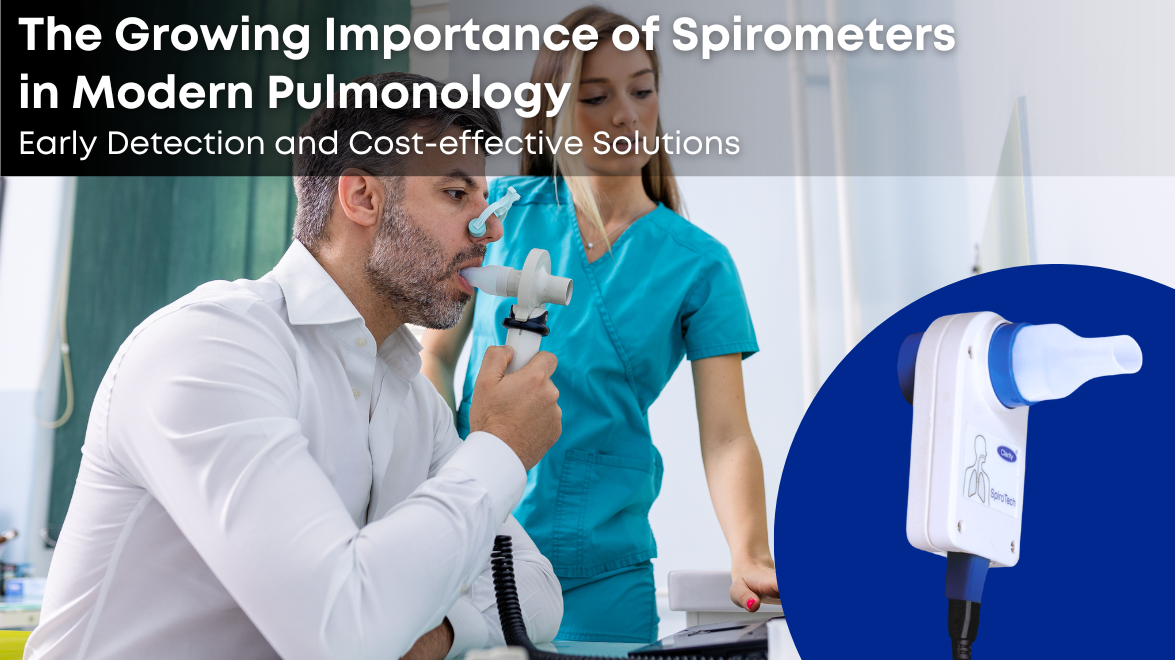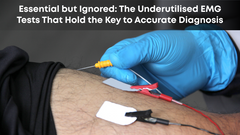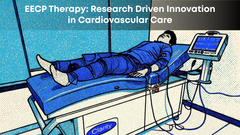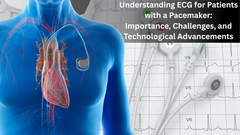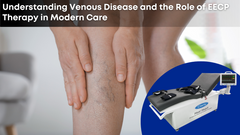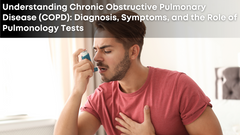The Growing Importance of Spirometers in Modern Pulmonology: Early Detection and Cost-Effective Solutions
In recent years, the significance of timely pulmonology tests has become increasingly evident, especially with the rise in respiratory conditions worldwide. Spirometers, essential tools in pulmonology, play a crucial role in diagnosing, managing, and monitoring a range of lung diseases. These devices have become indispensable in medical settings, from primary care clinics to specialized respiratory centers. As healthcare systems strive to improve patient outcomes through early detection and intervention, the importance of accurate and accessible spirometry testing cannot be overstated. One notable advancement in this field is Clarity Medical's Spirotech, which offers robust diagnostic capabilities while remaining economical, making quality lung function testing accessible to a broader audience.
Understanding Spirometers and Their Diagnostic Capabilities
Spirometers are devices that measure lung function, specifically the volume of air inhaled and exhaled by the lungs. They are used in a variety of pulmonary function tests (PFTs) to assess how well the lungs work. These tests are crucial in detecting a range of respiratory conditions, including:
> Chronic Obstructive Pulmonary Disease (COPD): Spirometry is the gold standard for diagnosing COPD, a chronic inflammatory lung disease that obstructs airflow from the lungs. By measuring the Forced Expiratory Volume in one second (FEV1) and the Forced Vital Capacity (FVC), spirometers help in assessing the severity of the disease and monitoring its progression.
> Asthma: Spirometers are used to diagnose and manage asthma by evaluating airflow obstruction. They measure parameters such as Peak Expiratory Flow (PEF) and FEV1, which help in identifying airway constriction and the effectiveness of treatment plans.
> Restrictive Lung Diseases: Conditions such as pulmonary fibrosis and sarcoidosis, which limit lung expansion, can be detected using spirometry. Tests like Slow Vital Capacity (SVC) provide insights into the lung's capacity to hold air, helping in the diagnosis of these restrictive conditions.
> Bronchitis and Emphysema: Spirometry helps differentiate between chronic bronchitis and emphysema, two major types of COPD. It aids in assessing the degree of airflow limitation and guides treatment decisions.
> Pre-Surgical Assessments: Spirometry is often part of the pre-operative evaluation for patients undergoing surgery, especially those with a history of respiratory issues. It helps in assessing the risk of postoperative complications related to lung function.
> Monitoring Lung Health in Smokers: Smokers and individuals exposed to environmental pollutants are at higher risk of developing lung diseases. Regular spirometry testing can detect early changes in lung function, prompting timely interventions.
The Rising Importance of Timely Pulmonology Tests
The global burden of respiratory diseases has been steadily increasing, exacerbated by factors such as air pollution, smoking, occupational hazards, and more recently, the long-term effects of COVID-19 on lung health. The World Health Organization (WHO) identifies chronic respiratory diseases as one of the leading causes of morbidity and mortality worldwide. As such, timely and accurate pulmonology tests have never been more critical.
> Early Detection and Intervention: Early diagnosis of lung conditions significantly improves patient outcomes. Conditions like COPD and asthma, when detected early, can be managed effectively with lifestyle changes, medications, and regular monitoring. Spirometry plays a vital role in early detection, enabling healthcare providers to intervene before the disease progresses to a more severe stage.
> Managing the Impact of COVID-19: The COVID-19 pandemic has highlighted the importance of lung health, with many recovering patients experiencing long-term respiratory complications. Spirometry is now being used to assess the lung function of COVID-19 survivors, guiding rehabilitation efforts and helping to identify those at risk of chronic lung conditions post-infection.
> Reducing Healthcare Costs: Timely spirometry testing can reduce the economic burden on healthcare systems by preventing hospitalizations and reducing the need for expensive treatments associated with advanced lung diseases. By diagnosing conditions early, patients can avoid severe exacerbations that often lead to costly emergency room visits and intensive care.
> Improving Quality of Life: Respiratory conditions, if left untreated, can significantly impair quality of life, leading to reduced physical activity, anxiety, and depression. Regular spirometry testing helps in the ongoing management of these conditions, ensuring that patients maintain an optimal level of health and activity.
Clarity Medical's Spirotech: A Cost-Effective Solution for Superior Diagnostics
As the demand for spirometry testing grows, the need for reliable and cost-effective spirometers becomes more apparent. Clarity Medical's Spirotech stands out as an innovative solution that addresses these needs. Here’s how Spirotech provides great diagnostic capabilities while being economical:
> Advanced Diagnostic Features: Spirotech offers comprehensive spirometry testing, including FVC, FEV1, FEV1/FVC ratio, PEF, and more. Its advanced sensors provide accurate and reliable measurements, ensuring that healthcare providers have the critical data needed to make informed decisions.
> User-Friendly Interface: Designed with both the clinician and patient in mind, Spirotech features an intuitive interface that simplifies the testing process. Its easy-to-read display and guided instructions help reduce user errors, leading to more consistent and reliable results.
> Portable and Compact Design: Spirotech’s compact design makes it highly portable, allowing for spirometry tests to be conducted in a variety of settings, including clinics, hospitals, or even at the patient’s bedside. This versatility is particularly valuable in rural or resource-limited areas where access to specialized equipment may be restricted.
> Cost-Effectiveness: One of the standout features of Clarity Medical's Spirotech is its affordability without compromising on quality. By providing a high-performance spirometer at a competitive price, Clarity Medical ensures that more healthcare facilities can offer routine spirometry testing, thus broadening access to essential diagnostic services.
> Durable and Low Maintenance: Built with durable materials and requiring minimal maintenance, Spirotech is designed to provide reliable service over the long term. This durability further enhances its cost-effectiveness, as it reduces the need for frequent replacements or repairs.
Conclusion
As the prevalence of respiratory conditions continues to rise, the importance of timely and accurate lung function testing is paramount. Spirometers like Clarity Medical's Spirotech are at the forefront of this effort, offering healthcare providers the tools they need to detect and manage lung diseases effectively. By providing an economical yet highly capable spirometer, Clarity Medical is making quality respiratory care accessible to more patients, ultimately improving health outcomes and quality of life.


